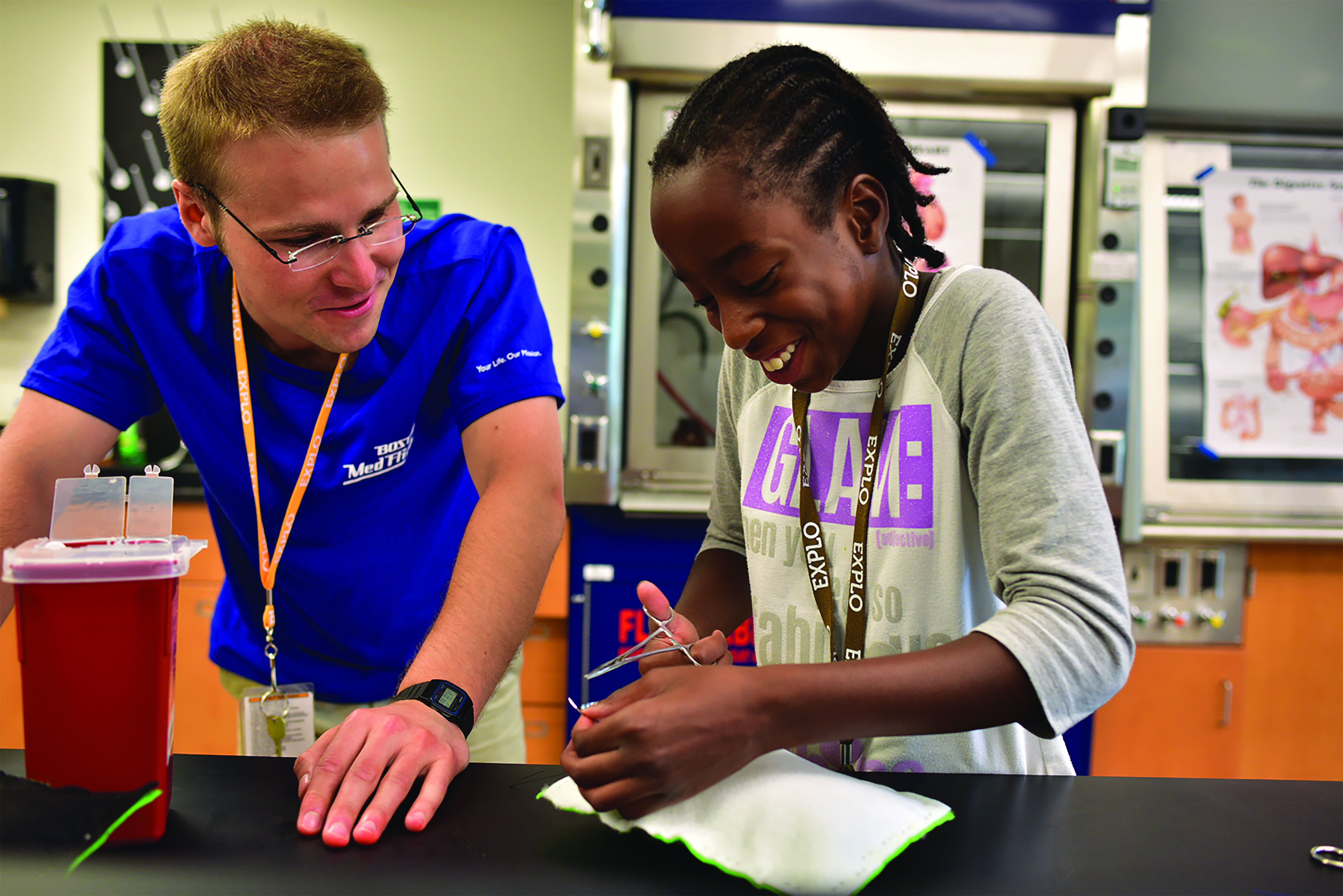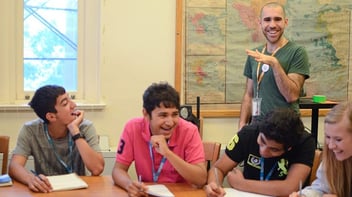Mrs. Swanson and Mr. Bulger: Investing in Potential

In 9th grade, I had a homeroom teacher named Mrs. Swanson. In those days, at my school, homeroom was a big deal. It was where all things began and ended, and if you had a study hall, it also took place in that setting. Ninth grade was the culminating year for Junior High in my town, which means it was my third year at the school.
It also meant that, like every student, I had a reputation. Unlike every student, mine was not particularly good. In fact, I suspect it was pretty bad. I was a bright kid — but I was also a loud and active kid, and could be disruptive when I got bored. That happened a lot to me while in school. The Humanities, which I loved, seemed to be going too slow for my mind. Math and Science, which frightened and confused me, seem to go all too fast.
The first day I was in Mrs. Swanson’s homeroom, I casually chatted to a neighboring student. Mrs. Swanson heard my voice, and told me in a loud, firm tone that she was not going to have any of my bad behavior in her classroom, and insisted I move my seat to a space that was immediately adjacent to her desk at the front of the class. I was physically separated from my peers, and was now literally attached to her.
Meeting Expectations
I’m sure Mrs. Swanson made the decision to be very firm right at the beginning, and was likely told by other teachers that if she didn’t rein in my behavior early, I was going to make a mess of things.
But in her response, I could see what she thought of me, and the level she expected me to reach. I internalized that, and to a certain degree, I met her exactly at her expectations. From my perch at the front of the room, I became the disruptor she feared I would be. She practically assigned me the job.
Another teacher gave me a different set of expectations. Mr. Bulger was my English teacher, and there was nothing boring about the way he taught literature. Or even, for that matter, the potentially deadly subject of grammar. To this day, I can remember all of the helping verbs, as the fun competitions he set up burned them permanently into my brain (I just timed myself - I can still say all 23 in under five seconds).
More importantly, Mr. Bulger seemed to respect what I knew, what I could do, and even more importantly, what I might possibly do in the near future. He played to my strengths. Mr. Bulger called on me often to read aloud, and gave me choice parts in three plays (“Cheaper by the Dozen,” “You Can’t Take It With You,” and “The Glass Menagerie”). I remember reading a line from one of them, and he sighed out loud and pointed out my sensitive rendering of the words.
The word “sensitive” had never before been associated with me by anyone.
At the end of the first quarter, Mr. Bulger asked me if I had made the honor roll. He said it matter-of-factly, as if the answer was going to be an obvious yes. I was startled, and laughed and said, “not even close.” He looked at me with concern and quietly said, “Well, you could.”
He had set expectations of me, just as Mrs. Swanson had. I met his expectations, too. I was one of the best students in his class. He laid a path for me with his faith and belief in me, and it was easy for me to walk down such a clear, pleasant road. Of course, these things are not curative or permanent — a single show of faith may not be enough for the long journey. But it was clear that I had an ability to read what people believed about me (maybe I was sensitive), and raise or lower myself accordingly.
As I got older, I started to curate the many expectations I had heard over the years. I was able to recall and play the more positive ones in my own head, more often than the negative ones. A much greater sense of autonomy was created when I was able to put into perspective the expectations others had for me. I could see, for example, that while I may have deserved some of those negative expectations, I didn’t have to fulfill them. I got a little freer to make choices as I aged. But sensing what others expect of me, and being at least a little influenced by it, has never fully left me.
Investing in Potential
As a teacher, dorm head, coach, dean, and program head, I’ve tried to remember Mr. Bulger’s investment, his expectations, and his faith. And when I have bestowed those on others, I have often been surprised by the effect it has had on my students and staff.
Flash forward a few decades, and now I am the leader in a situation: I remember Tom, a charismatic person who seemed to take the easy way out for a lot of his work, and was kind of proud of it. He was not a particularly good teacher, and my administrators were thinking it was best if we didn’t bring him back for the next year. And they had a good argument - he didn’t seem to apply himself - or at least, that is what it looked like to them.
I saw something in Tom that I believed in. He emphasized relationships over bureaucracy - which didn’t work when he showed up for class and didn’t have his supplies. But students really liked him, and said that he really listened to them, and made them feel special. I decided to invest in those talents and gifts, and moved him over to be a Residential Director. Before he started In that position, I was blunt about his failures. But I also was effusive about the qualities of his that I admired, and we talked a lot about how he could use them for good. His work in the Student Life office turned out to be excellent, and later, he told me he believed in himself in proportion to the faith I had expressed.
When they know I believe in them, they usually rise up to meet my hope and faith. But if I am honest, I have, on some occasions, acted like Mrs. Swanson, where they could feel that I didn’t trust them, and that I had faith in their likely failure. I suspect that, on some occasions, my students and staff met those expectations as well.
Whatever age student (or child) we are talking about, they have buried in their brains a detector that senses the degree of faith that adults have in them. As adults, it is our challenge to convey our faith in their potential - even if we know that the present is wanting. Maybe especially then…
David Torcoletti is the Head of EXPLO’s Junior Program. He is a longtime educator, former School Dean at Northfield Mount Hermon School and Dean of Students at Milton Academy. He is also a recognized fine arts photographer.



